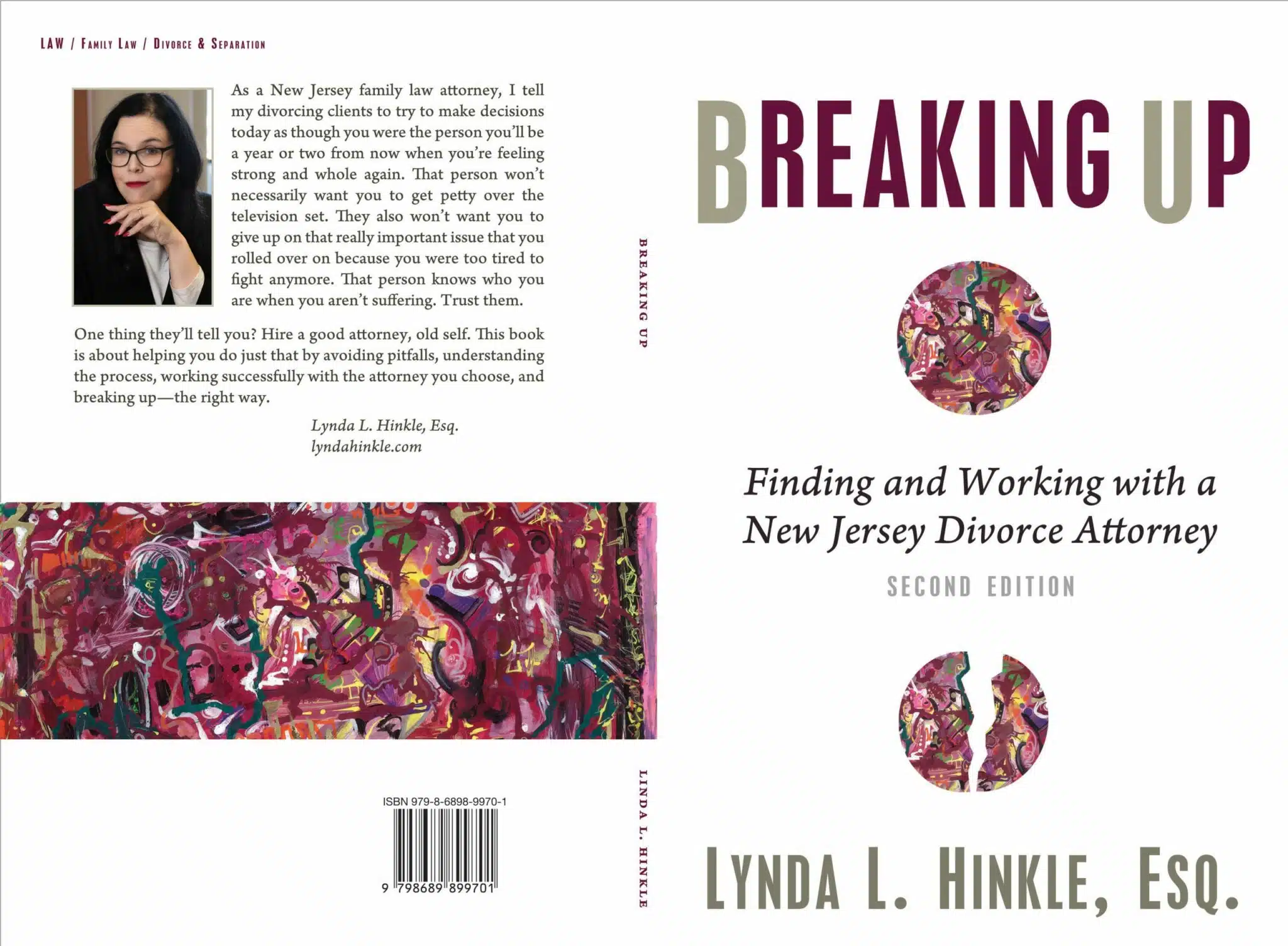
The emotional aspects of divorce are something divorce lawyers have to navigate, but it is not our expertise. Although we try to help clients through this difficult time, a supportive therapist is an amazing tool in your arsenal if you are struggling. We caught up with Steve Cohen, a local therapist, who offers some tips.
LLH: What are the best coping strategies for people going through a difficult divorce?
SC: The person wants to begin with looking at the coping skills they have and ask:
- Are they healthy?
- Do the strategies result in the person engaging in a challenge or problem instead of avoiding and escaping the discomfort from the challenge or problem.
In my practice, we focus on the individual. The best outcomes are when strategies are based upon the person and not the “all knowing expert”….it’s a partnership where we work together toward finding what works for you. I find people tend to fit into groupings of positive coping strategies:
- Group 1: Examples: Listening to music, meditation, take a time out, visualization, read, draw/paint/create something, use a relaxation app, drink water or tea.
- Group 2: Examples: Go for a run, play a sport, hug something (pillow, stuffed animal), talk to a trusted person, cook/bake, Yoga, organize something, write down your thoughts, play an activity (card game, video game)
Most people will find they fit in both groups. Group 1 are coping skills that can be described as mostly quiet contemplation, a person is seeking to cope through internal like strategies, seeking a calm before taking on the storm. Group 2 is what I consider the externalizers, those who seek some type of activity to release a pent-up energy.
It’s important for a person to understand not only which coping skill group they prefer or how to blend them, but when each type is appropriate to use. Some things to consider:
- Which of my coping strategies are able to be used? Not all situations will allow a use of “go for a run” or “do yoga for 20 minutes” if you are at a family gathering where your family is asking casually “how’s the divorce going” for instance.
- At the time of the stressor, which will be more supportive – internal or external? At times someone may use meditation mostly however a particular situation with the soon to be ex-spouse has a person’s emotions raging, yoga or mediation isn’t feeling right at the moment. Going to the gym or finding some way to exert that excess energy will be more helpful.
The “best” coping strategies are the one’s a person tries out and sees how helpful they are. Use the internet to explore coping skills for adults, read through the suggestions and try out as many as possible. The better you tailor a coping plan to yourself, the better the strategies will work for you.
LLH: How do you suggest people prepare for divorce, on the emotional end?
SC: I suggest allowing the person to grieve for the loss that is occurring and acknowledging their loss. Most people are familiar with grieving and loss when someone passes away. Current understanding on grief and loss move beyond that definition allowing grief to be for any loss that occurs in a person’s life. The emotional pain from the loss is often complicated in a divorce, depending on how it’s ended and how prolonged and stressful that ending has become.
Often people feel guilt and shame wanting to be “emotional” about the ending, if the grieving is not allowed, then the thoughts and emotions are pushed aside. These emotions and thoughts though will marinate in our memories, they will return except marinating in time only intensifies the pain involved the thoughts and emotions relating to the ending of the relationship.
Similar to finding what coping strategies work for someone, finding a grieving outlet, how to express this pain involving the loss will be individualistic. Some will find looking at old memories via pictures, shared items, shared life moments and the like while painful help recognize the relationship had good moments. Others will certainly go in another direction, or neither but engaging in the past memories in their own way. The most important thing is not to state to yourself “just move on” or “it’s over why do I need to think about what’s done” cutting off the chance to grieve the loss. Remember, escapism has its place but too much escape means you never heal. Unresolved pain from past relationships will carry into future relationships.
While self-care is always important for emotional health, when such a stressful event like divorce is occurring, allowing time to rest and time that is focused on yourself is so important. Eat healthy: while stress indulges are normal, bring yourself back to caring for your body so it can support you emotionally. I do not suggest this is a moment where you suddenly decide you be super uber healthy using the latest “this is healthy in 2021”. Be kind to yourself in your self-care, in finding that balance of good eating, good sleep and good coping.
Self-care also includes what information we take in and what goes out in relation to the divorce. There will be many good intentions from family, friends, co-workers or even the barista at Starbucks. Good intentions don’t always equal helpful or supportive. Be prepared for the well intentioned advice givers, however trust your own experience and knowledge of self. Your perspective is the original. Allow people to care, don’t push others away (unless needed), and understand the advice you get comes from a caring place; however, too much listening will affect your own balance of your own decisions and emotions.
LLH: How do you recommend that people explain to children that they are getting divorced?
SC: It begins with understanding what kind of communication the parents had with the children during the marriage. Was the communication with the children often, open and difficult discussions were had? Were the communications more mixed, some communication was done, open to an extent and some attempts at difficult discussions? Were the communications more wanting to protect the children saving them from a lot of conversation and anticipating the needs of the children? More than likely, most parents will find a bit from each scenario, understanding how that mix of communication was, is how you proceed.
Age of the children is important. Age-appropriate wording and explanations are supportive, in all cases of children, keeping the details of “why” out of the reach of the children is important. Letting the children know a set of parents are no longer going to be together, using the opportunity to discuss how relationships do end – but it isn’t necessary or helpful to share intimate details. Encourage the children to express their thoughts, although many children will not want to share. In the instances of those children not wanting to share, if it appears to possibly create challenges for the child not expressing themselves, find ways to encourage expression through different activities in the home or away allowing the child to build up the comfort to express their confusion about divorce. The internet has excellent resources involving activities, books on explaining what is happening to the family as well as other suggestions, the use of the internet as a resource keeps the focus on the person and their own comfort and beliefs.
LLH: How can they reach out to you if they need help? What other resources do you recommend?
SC: I have a private practice in Woodbury, NJ where I do in person therapy and I offer therapy via telehealth as well (phone, zoom). You may contact me at:
- 877-322-4325
- 45 Euclid St., Woodbury NJ
- [email protected]
I suggest other resources such as support groups, for both the parents and the children if they are willing. Support groups are often casual settings with people in the groups sharing a common reason they are there supporting one another. Here is a link to help begin the search: https://www.verywellmind.com/best-online-divorce-support-groups-4802209
This is a tip sheet for divorced parents: https://www.divorcenet.com/states/florida/fifty_tips_for_divorcing_parents


